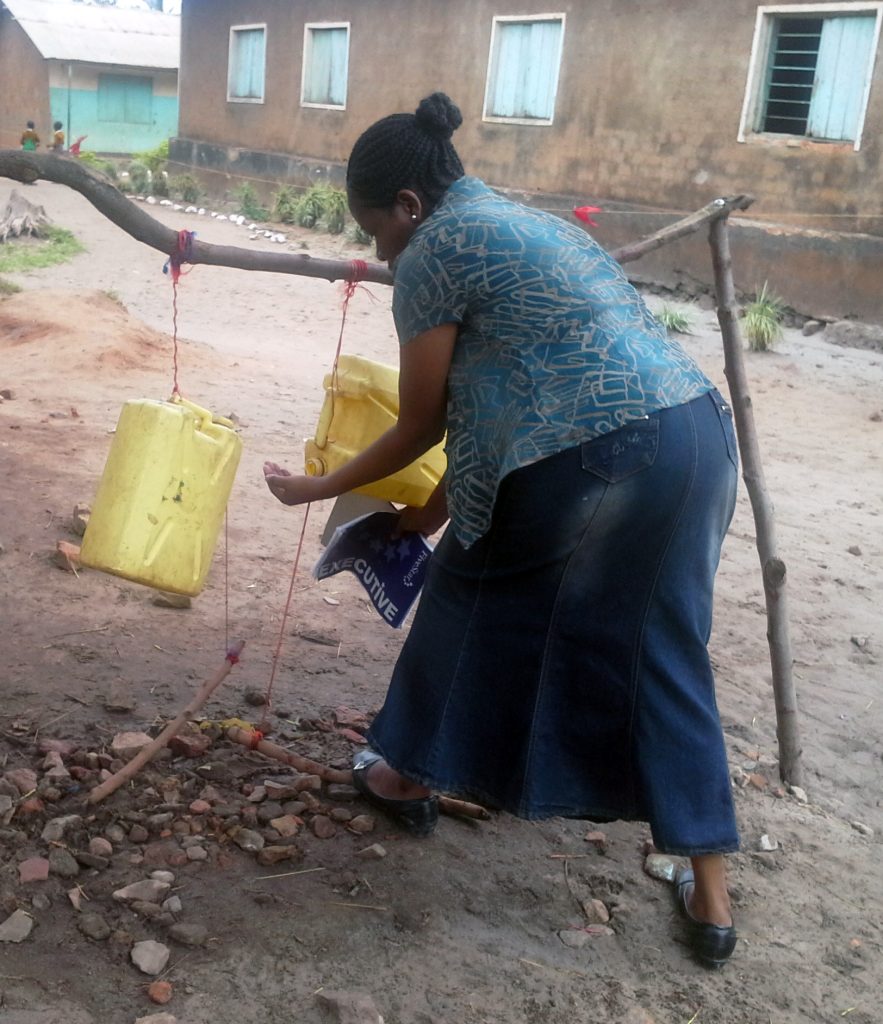In 2012, I-TECH designed and developed an electronic medical records (EMR) system, KenyaEMR, to support the care and treatment of HIV/AIDS. KenyaEMR is built on the OpenMRS platform. I-TECH supported the implementation of KenyaEMR in over 300 health facilities throughout Kenya—one of the largest open source EMR rollouts in Africa.
Category: Countries
Innovative Training Models in Tanzania
I-TECH Tanzania has implemented many pre- and in-service training initiatives and materials, as well as adopted TrainSMART. Continue reading “Innovative Training Models in Tanzania”
Field Epidemiology Training Program (FETP) in Tanzania

For Tanzania to meet a WHO-specified target of one or more epidemiologists per 200,000 population [1] it will require an additional 250 epidemiologists who are well-trained and geographically distributed in all regions of the country.
To help address this gap, I-TECH, in collaboration with the Centers for Disease Control and Prevention (CDC) and the Ministry of Health Community, Development, Gender, Elderly and Children in Tanzania, launched a new Intermediate Field Epidemiology Training Program (FETP) for mid-level health professionals.
Continue reading “Field Epidemiology Training Program (FETP) in Tanzania”
Differentiated HIV Service Delivery Models in Tanzania
In October 2016, the Government of Tanzania adopted the World Health Organization’s (WHO) Treat All recommendations. The adoption of WHO recommendations, coupled with the Government of Tanzania’s acceptance of the UNAIDS 95-95-95 targets represents a significant commitment to the fight against HIV in Tanzania.
Continue reading “Differentiated HIV Service Delivery Models in Tanzania”
Improving HIV Care and Treatment across the Caribbean
I-TECH supports a variety of activities aimed at improving HIV care and treatment in the Caribbean region, such as on-site clinical mentoring, development of training curricula, and providing clinical support materials to improve care and treatment for HIV/AIDS in the Caribbean region.
Continue reading “Improving HIV Care and Treatment across the Caribbean”
eLearning Programs in the Caribbean
I-TECH has partnered with universities and ministries of health (MoH) in the region to develop accessible in-service training opportunities for HIV providers using distance and blended learning.
Improving HIV Care for Key Populations in the Caribbean
Key, at-risk populations in the region include men who have sex with men (MSM), bisexual men, transgender women, and sex workers. In Jamaica, HIV prevalence among MSM was estimated at 32.8%,1 as compared to an estimated prevalence of 1.8% in the general adult population in 2017.1 Among transgender women, the HIV prevalence was estimated between 25.2%2 – 52.9%3 and among female sex workers, HIV prevalence is estimated at 2%.1 Reducing stigma and discrimination toward vulnerable groups in health care settings can have a positive impact on enrollment in care, retention in care and treatment, and viral suppression of HIV in communities most heavily burdened by HIV infection.
Continue reading “Improving HIV Care for Key Populations in the Caribbean”
Continuous Quality Improvement Collaborative in the Caribbean
Since 2013, I-TECH has led quality improvement (QI) collaboratives in the Caribbean region, enabling multidisciplinary teams at health facilities to work toward a common goal of improving care and treatment for HIV-positive patients.
Continue reading “Continuous Quality Improvement Collaborative in the Caribbean”
Layering Research and Practice in Haiti
The EMR iSanté enables research on population health in Haiti, including the implementation of Option B+. This work was presented at the International AIDS Society Conference in 2015 Continue reading “Layering Research and Practice in Haiti”
Pamela Kohler

Pamela Kohler, PhD, MPH, BSN, is a Professor and holds joint appointments in the departments of Child, Family, and Population Health Nursing, and the Department of Global Health. At I-TECH, Dr. Kohler led the Tanzania Intermediate Field Epidemiology Training Program (FETP) and currently leads the evaluation and continuous quality improvement activities of the Afya Hatua Project under Tanzania Health Promotion Support. She has led multiple evaluations of programs and policies throughout Eastern and Southern Africa, including HIV differentiated care, cervical cancer screening and treatment, and cryptococcol meningitis services.
Dr. Kohler’s research involves development and testing of health services interventions to improve engagement in HIV care. She led two trials using standardized patient actors to destigmatize HIV prevention and treatment services for adolescents in Kenya and currently leads a stepped care intervention, assigning intensity of services to those with highest need, in Western Kenya. Dr. Kohler completed her nursing training at Johns Hopkins University, and worked clinically in HIV care and Emergency Departments. She holds a PhD in Nursing and an MPH in Health Services from the University of Washington.
Publications
McConnico C, Jed SL, Marumo E, Mazibuko S, Mema GM, DeKadt J, Holmes K, Kohler PK. Systems Mapping of Sexually Transmitted Infection Services at Three Clinical Sentinel Surveillance Sites in South Africa: Opportunities for Integrated Care. J Assoc Nurses AIDS Care. 2017 Jan-Feb. pii: S1055-3290(16)30121-2. doi: 10.1016/j.jana.2016.09.004.
Kohler PK, Marumo E, Jed SL, Mema G, Galagan S, Tapia K, Pillay E, DeKadt J, Naidoo E, Dombrowski JC, Holmes KK. A national evaluation using standardised patient actors to assess STI services in public sector clinical sentinel surveillance facilities in South Africa. Sex Transm Infect. 2017 Jan 27. pii: sextrans-2016-052930. doi: 10.1136/sextrans-2016-052930.
Kohler PK, Tippett Barr BA, Kangʼombe A, Hofstee C, Kilembe F, Galagan S, Chilongozi D, Namate D, Machaya M, Kabwere K, Mwale M, Msunguma W, Reed J, Chimbwandira F. Safety, Feasibility, and Acceptability of the PrePex Device for Adult Male Circumcision in Malawi. J Acquir Immune Defic Syndr. 2016 Jun 1;72 Suppl 1:S49-55. doi: 10.1097/QAI.0000000000000774.
Kohler PK, Namate D, Barnhart S, Chimbwandira F, Tippet-Barr BA, Perdue T, Chilongozi DA, Tenthani L, Phiri O, Msungama W, Holmes KK, Krieger JN. Classification and rates of adverse events in a Malawi male circumcision program: impact of quality improvement training. BMC Health Serv Res. 2016 Feb 17;16(1):61. doi: 10.1186/s12913-016-1305-x.